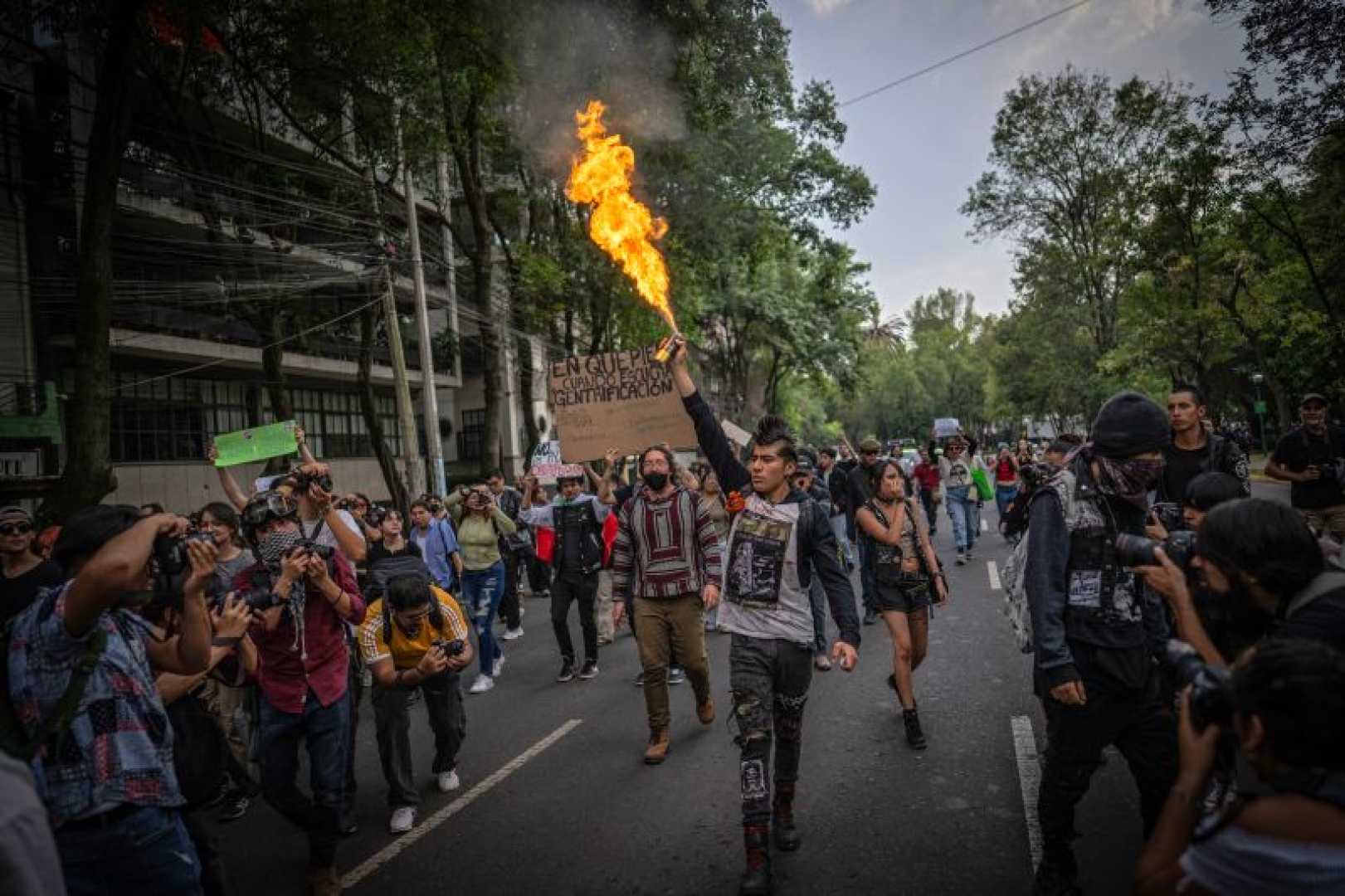World
Protests Erupt in Mexico City Over Gentrification

MEXICO CITY — Anti-gentrification protests erupted in Mexico City on July 4, targeting American expatriates and remote workers. Protesters, frustrated over rising rents and changing neighborhood dynamics, gathered in popular areas such as Roma and Condesa, where many expatriates live and work.
The demonstration began peacefully, with signs reading “Gringo: Stop stealing our home” and “Housing regulations now!”. However, the situation escalated when some protesters turned violent, damaging storefronts and looting businesses, including a Starbucks. Videos of the chaos quickly circulated on social media, prompting discussions about the impact of tourism and gentrification on local communities.
Protests against gentrification have been gaining momentum in Mexico City as locals complain that skyrocketing housing costs have pushed them out of their own neighborhoods. Many Americans began moving to the city during the pandemic, drawn by a lower cost of living and remote work opportunities. This influx has changed the character of the neighborhoods, often referred to as becoming expatriate enclaves.
In an interview, a protester expressed concern, saying, “It’s not just about Americans; it’s about the future of our city and our culture.” Another local acknowledged, “There are many good things about having foreigners here, but it shouldn’t come at the expense of local residents.”
President Claudia Sheinbaum condemned the vandalism during the protest but acknowledged the complaints about gentrification. “We’ve always been open, fraternal,” she stated, suggesting that the city needs to address the issue of rising rents effectively.
A study indicated that the number of Airbnb listings in Mexico City is significant, which some locals attribute to the increasing rental prices. Critics argue that these short-term rentals contribute to housing shortages for long-term residents.
The protests reflect broader trends in urban areas facing similar issues across the globe, where locals often feel overshadowed by newcomers. As the movement gains traction, local officials are under pressure to implement housing policies that benefit residents instead of just catering to tourism.
Experts warn that without significant reforms, the tensions between local residents and new arrivals are likely to persist. “This isn’t just about housing; it’s about creating a city that works for everyone,” one analyst noted.












